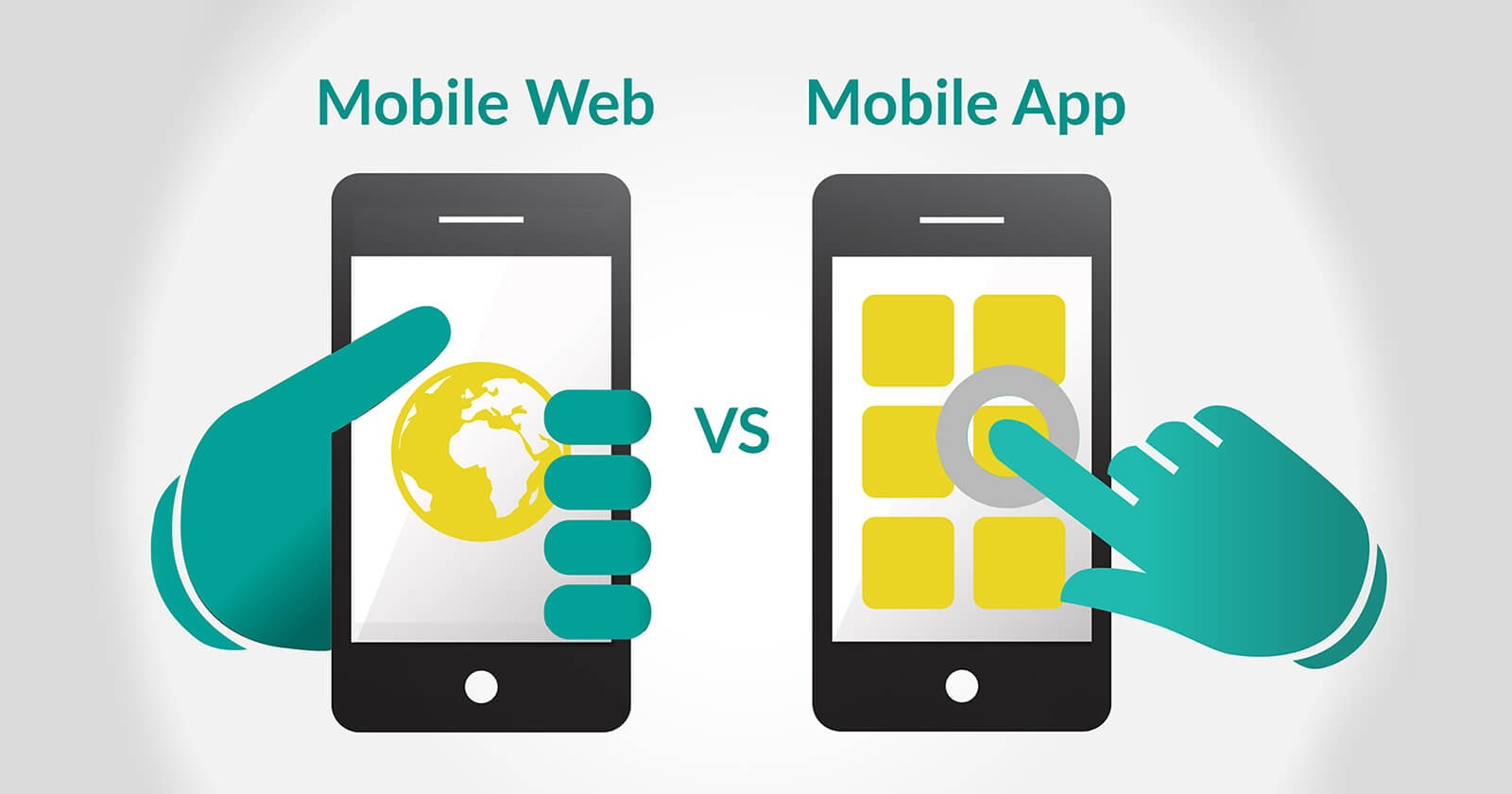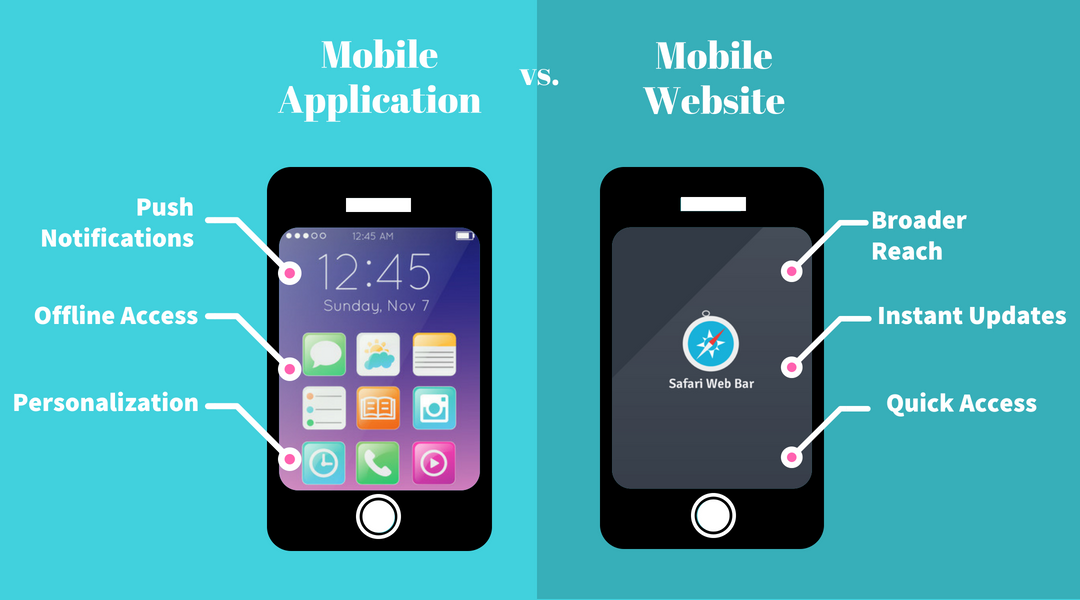

Nowadays, everyone uses the opportunities provided by the worldwide network. Of course, to be closer to your customers, your business definitely needs a website. Access to the Internet 24/7 from almost anywhere in the world is becoming increasingly possible thanks to various mobile devices that are improving and popularizing very quickly. Focusing on mobile gadgets is not just a modern trend, but a mandatory strategy in order not to lose existing and potential customers. There are several paths to the mobile world. Among them is a mobile version and a responsive web design. In addition to site adaptation, you can also create a completely new product - a mobile application. Since the mobile web application is the same concept as the mobile version of the website, today we will focus on the so-called "native" mobile applications, which immediately come to people's minds when they hear the simple phrase "mobile application" .
So which way to deliver content via mobile devices makes the most sense for your business? Site or app? Let's compare two options to make the best decision.
Criteria for comparing the site and the application:

Accessibility
Users have direct access to websites through the browsers of any device connected to the Internet. To view the content of a "native" application, it must first be found in online stores such as Apple's App Store, BlackBerry App World, Windows Phone Store, or Google Play. After finding, download and install. It requires more time and effort compared to a website.
In addition, "native" applications are "native" to the specific platform for which they are specifically designed. Thus, an Android phone cannot run, for example, an iOS application, and vice versa: an Apple phone cannot run an Android application. So, you will have to maintain several separate versions of the app to make it available for each type of device of your customers. At the same time you can use, for example, React Native or Flutter which allow to develop mobile applications the same as for IOS, as for Android. A little more about them you can find in our article -> https://development.redentu.com/article/best-cross-platform-frameworks-for-mobile-app-development-in-2020
Internet connection
Since the sites work in the browser, they require the presence of the Internet, otherwise they have no meaning. There are many ways to connect to the Internet, both wired and wireless, but sometimes users do not have a network connection for some reasons. In such cases, it is convenient to use "native" applications, because one of its advantages is the possibility of offline access to content.
Relinking
A website URL can be easily shared between users via email, SMS, private message or social media post. Site owners may place hyperlinks to other sites on their pages. Apps do not have this property.
Renewal
A website is more dynamic than a "native" application in terms of the update process. Any changes in design or content become visible to users instantly without any action on their part. The only problem is that when the website is updating it will be unavailable for user for a few minutes. Users of "native" applications who want the latest version must install it themselves. This is also problematic because they may not be aware of the release of each new version, at least not immediately (but of course we can add push notifications any time and for any reason. It will have a big plus for you, as in such ay your users will get all important news as soon as possible even without opening the app). So you end up having to support and maintain multiple versions at the same time as you wait for users to install your updated "native" app.
Term of operation
Research conducted by Pinch Media shows that the average "life" of iPhone apps is quite short - just 30 days. A month after installation, they are used by less than 5% of people. The curve on the chart for paid apps shows an even slightly steeper decline. So, your app needs to be something truly unique and truly useful to keep consumers' attention as long as possible. Unlike applications, a website cannot be deleted by users and is always ready for their return.
So, what to choose?
If your goal is to get your frequently updated content out there and educate as many people as possible, then a site is a good solution because it can be easily found by search engines, viewed without the need for installation, and URL transfer between users. If you expect your product to be personalized by your target audience, the app is best suited for personal accounts and user-generated content.
If you're still hesitant, you can also strengthen your presence in the mobile world with both a website and an app at the same time. So you will be able to present your product to the audience as well as possible and declare that the brand is really worth paying attention to - because you will satisfy the needs of both those who like to use websites and those who prefer mobile applications.
Whatever you choose, remember that we are always ready to help your business keep pace with the times. Just contact us any convenient for you time!
Do you like it? Share:
© 2026 All rights reserved.
AI Redentu
Assistant
Welcome to
Ai Assistant
Start chatting with Ai Redentu Assistant. But first, learn about its capabilities.
Portfolio
Show me Redentu's portfolio
Services
What services does Redentu offer?
Technologies
What technologies does Redentu work with?
Contact Us
How can I contact Redentu?


